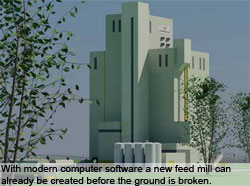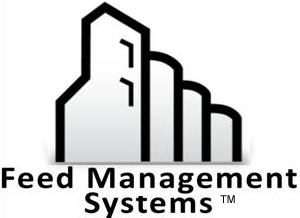A well considered project approach delivers to expectations

To plan and coordinate construction or optimisation projects is not an easy thing to do. In order to lead the plan in a structured way,a sound project approach is inevitable. The choice to manage the project with own resources or to call for external help of a supplier or consultant should be considered carefully.
For an efficient project, sticking to a structured approach is very significant. Design, tendering, execution, and commissioning as well as service and maintenance follow each other in the total project development cycle. The project management takes care of the logistical tuning, decision-making, time schedule, quality and budget control. Literature and practice uncover a number of reasons why projects often differ from the original fundamental ideas and planned time schedule. The majority of these reasons can be turned into some critical kinds of expertise.
Regularly the practice shows the importance of well controlled design, project management and project execution (see Table 1).
Process centre of design
An optimal design is the result of a correct process analysis of the project. The process is the centre of each design; through logical insights the whole process is optimised. The design has to fit to client’s requirements as well as the technical and economical possibilities. During the process the design is getting more and more concrete. First a concept plan should be made based on the program of requirements. Also, this stage highlights the feasibility of the project or scenario. Often necessary permits can be applied and obtained on the basis of this design.
Further engineering leads to a basic and detailed design in which the scope and investment calculation becomes more and more accurate. Within these stages a combination of three disciplines secure an integral project approach.
- Civil engineering leads to a solid base for foundation and construction calculations.
- Mechanical engineering provides a plan for machinery and internal transport fit for the job.
- Insights in electrical engineering and automation deliver solutions for control and communication.
By means of the detailed design a project or its individual parts can be tendered. During this procedure it is a challenge to compare different offers received with the program of requirements on a detailed level. By doing so, a good comparison can be made and the quotations can be judged independently.
Project management
For a solid project management various theoretical models and methods can be used. However, the theory must always be accompanied by a healthy dose of experience and routine. One of the most important things for successful project management is to formulate concrete and feasible targets. The targets have to be reached through a realistic project plan. Hereby communication and tuning between all parties involved is very essential. This can be realised by pre-defining the project organisation, which exactly describes tasks, competencies and responsibilities. The project manager is responsible for reaching the targets, tuning between the parties as well as budget control.
Project execution
After finalising the contracts with the selected suppliers, the project execution needs care and attention. To follow the project plan, a realistic daily schedule is absolutely necessary. This schedule functions as a guideline and needs to be adjusted if necessary to comply with the latest project status. To tune all facets of the construction, coordination as well as communication is a must. The schedule can only be kept by means of good coordination. Site supervision takes care of the technical part of the construction so that all works, starting with the foundation up to roofing will be realised according to the contracts. A safety coordinator will be employed in advance. He takes care of health and safety aspects and is responsible for all people on site. To apply the outlined expertise correctly, three different kinds of project approaches can be chosen: by own management, by using one supplier (eventually turn key) or by the assistance of an independent consultant. Realising projects through own management seems to be attractive. After all, the best basis for a design is own experience. Further more information about specific applications can be received by own research or by inviting suppliers of mechanical installations. To choose realisation by own management requires agreement on a couple of questions (see Table 2). Depending on the answers to these questions, choosing another project approach can be preferred.
Supplier managed projects
The project can be contracted out completely to one of the suppliers to take care of the whole project (eventually turn key). Mostly this choice is made on a basis of trust through delivered quality, reference projects and a long term relationship. If the choice is made to let one supplier execute the entire project, it is significant to pay attention to the supervision of the project. Conflicts of interest may rise between offering and executing parties. By means of a turn-key solution all risks can be avoided. Naturally, turn-key pricing reduces the transparency of the project. To be sure that the turn-key supplier follows the agreed scope, it is wise to appoint a project manager who exactly knows the contract signed and the way the project is realised.
Independent consultant
An independent consultant is able to set a clear line between the offering party and the subcontractor. An optimal design can be realised by combining the professional input of the client with the expertise and insight of the consulting engineer that is gained from references of similar projects. In the design an integrated project team should be created to cover all relevant aspects of engineering. A qualified consulting engineer acts on behalf and together with the client and is capable to speak to every party involved. Sometimes it is not easy to judge whether the price for consultancy will be recovered. The investment for consultancy services needs to be recovered by an optimal layout, a fruitful tendering procedure and a well coordinated project plan. By doing so, a shorter lead time between the first scratch and start-up can be realised resulting in more cash flow as production can start earlier.
Project approach
A project requires a structured approach, during which the experience, knowledge and insight of the complete project team is being proven. The project manager can choose from his own insight, the insight of the supplier or by using the experience of an independent consultant. Which choice is made depends on many factors, which needs to be analysed in order to get to a well considered project approach.











